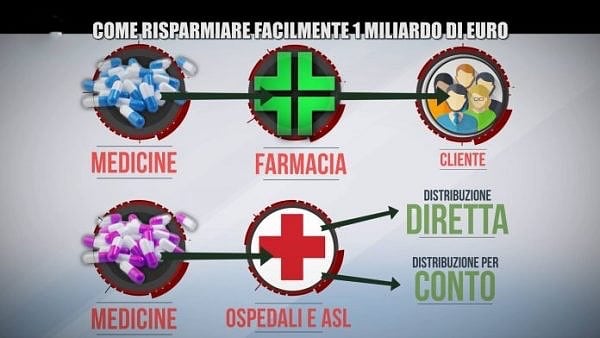Pharmaceutical expenditure: ancient vices require modern interventions
FEDERFARMA intervenes on the latest AIFA monitoring relating to 2019 pharmaceutical expenditure for
The data is once again unequivocal:
While for last year pharmaceutical expenditure for direct purchases recorded an absolute deviation of over 2.6 billion euros compared to the imposed limit of 6.69% (with no Region capable of respecting the expenditure ceiling), the net agreed pharmaceutical expenditure paid by the NHS stood at 7.7 billion euros, showing a decrease of 16 million compared to 2018.
A change of direction is therefore urgently needed, a different perspective that FEDERFARMA has always proposed with strength and determination in all venues, aware of the fact that a priori criticisms are of little use if not accompanied by concrete and feasible proposals, to be necessarily agreed between institutional decision makers and industry stakeholders.
It is useless to continue to plead the goodness of an organizational model, in fact bankruptcy, which places as the fulcrum of the system not the patient but the administrative centralization of expenditure as if it were the panacea for all ills.
It is useless to cling to the by now ancient "excuse" that the overruns of direct pharmaceutical expenditure are due to the introduction of innovative drugs, financed with special funds.
What is needed to structure a modern expenditure control model is, conversely, an effective monitoring system: only the acquisition and punctual appreciation of data will be able to represent the critical points of the entire sector, allowing to intervene effectively.
Some concrete proposals:
- – Le farmacie si rendono disponibili a trasmettere i dati della DPC – in cui dovranno convergere la maggior parte dei farmaci del PHT – anche attraverso le ricette elettroniche, con le stesse modalità oggi stabilite dall’articolo 50 delle Legge 326/2003: questo il meccanismo essenziale per garantire il monitoraggio della spesa e la puntuale verifica della prescrizione sanitaria e per assicurare l’appropriatezza delle prescrizioni;
- – Fronteggiare il drastico calo della spesa farmaceutica convenzionata con un nuovo sistema di remunerazione basato sull’apprezzamento, anche economico, dell’atto professionale reso dal farmacista nell’attività di controllo dell’aderenza alla terapia, in linea con le recenti modifiche apportate al decreto legislativo 153/2009 in sede di legge di bilancio 2020;
These are just some of the initiatives to be advocated immediately in the context of a "new process" which assigns a central role to the pharmacist and which predominantly favors healthcare professionalism over the commercial aspects.
The alternative to all this, in the face of the drastic drop in agreed spending, will be on the one hand the closure of many pharmacies, no longer able to maintain the necessary economic balance, and, on the other hand, the development of a model, favored also by the regulation on the entry of capital, which will see the pharmacy itself no longer as a garrison of the NHS in the area but increasingly calibrated on the US prototype of the drugstore.
